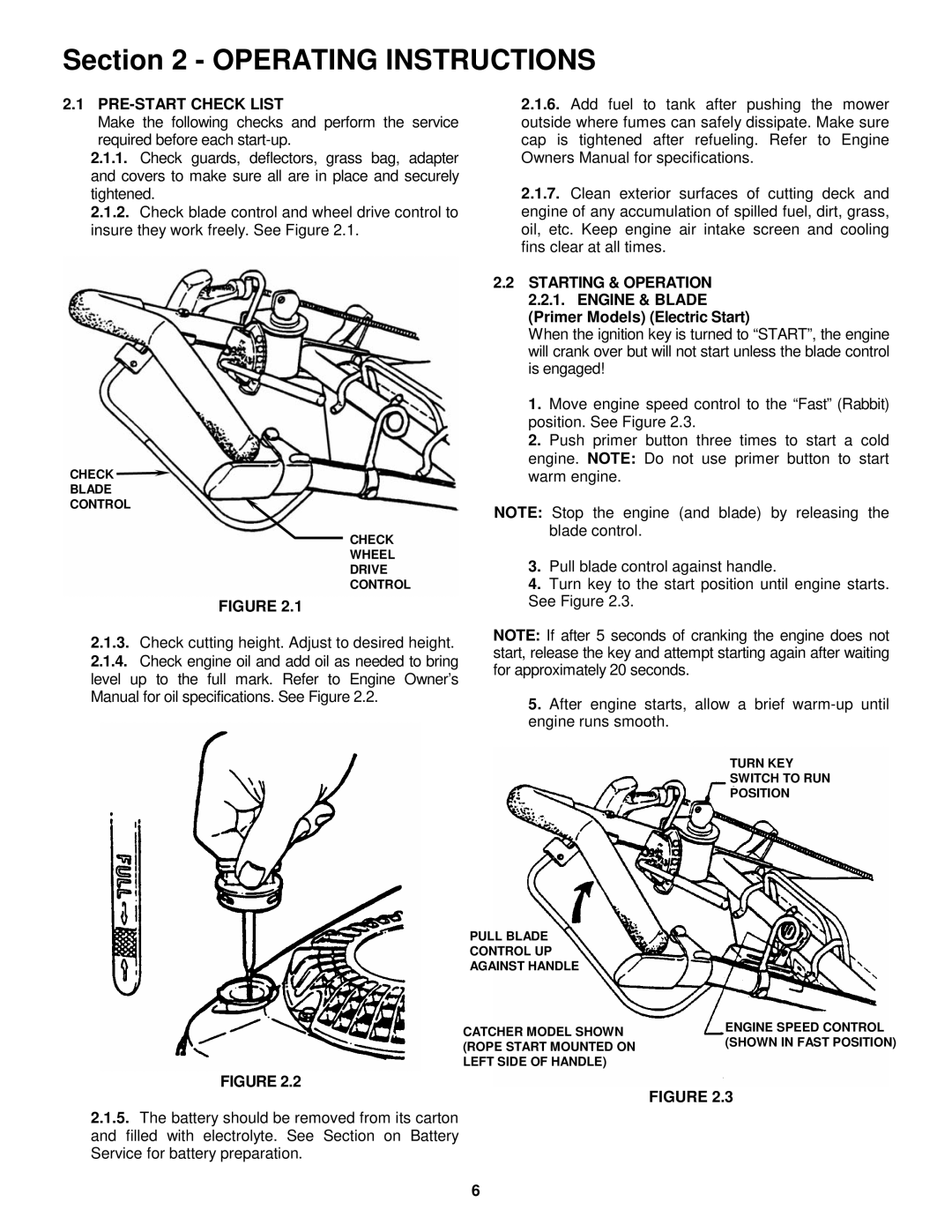
Section 2 - OPERATING INSTRUCTIONS
2.1PRE-START CHECK LIST
Make the following checks and perform the service required before each
2.1.1.Check guards, deflectors, grass bag, adapter and covers to make sure all are in place and securely tightened.
2.1.2.Check blade control and wheel drive control to insure they work freely. See Figure 2.1.
CHECK ![]()
BLADE
CONTROL
CHECK
WHEEL
DRIVE
CONTROL
FIGURE 2.1
2.1.3.Check cutting height. Adjust to desired height.
2.1.4.Check engine oil and add oil as needed to bring level up to the full mark. Refer to Engine Owner’s Manual for oil specifications. See Figure 2.2.
2.1.6.Add fuel to tank after pushing the mower outside where fumes can safely dissipate. Make sure cap is tightened after refueling. Refer to Engine Owners Manual for specifications.
2.1.7.Clean exterior surfaces of cutting deck and engine of any accumulation of spilled fuel, dirt, grass, oil, etc. Keep engine air intake screen and cooling fins clear at all times.
2.2STARTING & OPERATION 2.2.1. ENGINE & BLADE
(Primer Models) (Electric Start)
When the ignition key is turned to “START”, the engine will crank over but will not start unless the blade control is engaged!
1.Move engine speed control to the “Fast” (Rabbit) position. See Figure 2.3.
2.Push primer button three times to start a cold engine. NOTE: Do not use primer button to start warm engine.
NOTE: Stop the engine (and blade) by releasing the blade control.
3.Pull blade control against handle.
4.Turn key to the start position until engine starts. See Figure 2.3.
NOTE: If after 5 seconds of cranking the engine does not start, release the key and attempt starting again after waiting for approximately 20 seconds.
5.After engine starts, allow a brief
TURN KEY
SWITCH TO RUN
POSITION
PULL BLADE
CONTROL UP
AGAINST HANDLE
FIGURE 2.2
2.1.5.The battery should be removed from its carton and filled with electrolyte. See Section on Battery Service for battery preparation.
CATCHER MODEL SHOWN (ROPE START MOUNTED ON LEFT SIDE OF HANDLE)
ENGINE SPEED CONTROL (SHOWN IN FAST POSITION)
FIGURE 2.3
6
